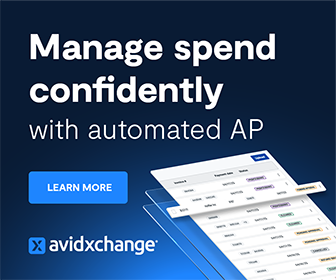As part of the Meet the Controller/CFO series, the Controllers Council recently interviewed Ashley Pena, Finance Director of the New York Philharmonic, where she is part of a team that facilitated a strategic and financial turnaround. She manages day-to-day finance and accounting functions, including a $250 million endowment. Prior roles included the AT&T Performing Arts Center in Dallas and the Dallas Opera. Ashley earned a Bachelor of Arts in Communication from the University of Texas at Arlington.
is part of a team that facilitated a strategic and financial turnaround. She manages day-to-day finance and accounting functions, including a $250 million endowment. Prior roles included the AT&T Performing Arts Center in Dallas and the Dallas Opera. Ashley earned a Bachelor of Arts in Communication from the University of Texas at Arlington.
Following are questions from moderator Neil Brown, and answers from Ashley Pena. If you are interested in learning more, view the full interview video archive here.
Q: You earned a Bachelor of Arts in Communication. What inspired you to pursue a career in finance?
A: I have a non-traditional path to my position. I kind of stumbled into it. As you mentioned, my degree is in communication. Specifically, I was going for advertising, and as I got into it, media planning, the numbers side of it really interested me. As I got toward the end of my degree, I realized that’s not really the direction I want to go. I went ahead and finished my degree. Well, in college, my dad, who is a CPA, encouraged me to take an accounting class. He’s like, “Just take a basic accounting class just so that you have some basic understanding of the finance side of a business.” I took one and I really enjoyed it. I took several more, and I ended up getting a minor in business.
Throughout high school and college, rather than working the restaurant or retail world, I had admin office jobs. The office was a very comfortable place for me. After I graduated, I took a job working basically accounts payable for a couple of entrepreneurs who had… They ran five small businesses out of the one office. From there, I was recruited to my first nonprofit role for the National Society of Hispanic MBAs, and I ran accounts payable. It’s been nonprofit and finance and accounting ever since. Each position I’ve taken, I’ve looked for additional responsibilities and roles to take on. In nonprofit, there’s never a shortage of tasks to take on, and it’s a very fulfilling career.
Q: What are the roles and responsibilities of a finance director?
A: A finance director is responsible for all the accounting functions of the company, payables, receivables, payroll, revenue recognition. I coordinate and oversee the annual tax return, the audit. In my case, there’s also a large FP&A component. I built and managed the long-range forecast and a cash flow model. One of my biggest responsibilities is to support my team and make sure that they have the tools and the information that they need to accomplish their responsibilities. I really like to dig in and understand the mechanics of our business so that I can design and maintain systems and processes that efficiently get the numbers in the right place.
Q: You mentioned in your bio the financial turnaround, do you think part of that was due to the pandemic? I mean, the orchestra had to have been closed for one year, maybe even two years?
A: Yeah, it was an interesting time to come into the company. I came in about six months before COVID hit. I was recruited by the COO at the time to facilitate and help with this turnaround plan that was board directed, “We need a strategic plan.” I came in and we had just finished putting those numbers together in March of 2020, and we were going to present later that month to the executive committee to launch our strategic plan. COVID hit and broke everything that was in the plan. In addition to recovering from just this scramble of everybody going remote and suddenly overnight we went from our business is bringing people together, and now suddenly that was a public health hazard.
We went dormant for a couple of weeks, and then we bounced into action figuring out how do we still engage our audiences and our donors, and we also completely redesigned our strategic plan. We took the dormancy of our normal day-to-day operations, and we accelerated renovation plan that we had for our performance hall. David Geffen Hall got a complete makeover. Next month is our inaugural season in our new hall. It was a very challenging and a little bit scary time, but I think that on the other side of it, we’re going to come out stronger and we’ll have a beautiful new home to welcome everyone back.
Q: Keys to Your Success?
A: Curiosity. Clearly communicated processes. A good, dependable team and a drive to constantly be looking for ways to improve our processes and our communication tools. That’s been the pillars of my work. I talked a little bit about this earlier, but genuine curiosity about how the company works, who does what, who needs what information, what isn’t working, what is working, how do we augment what’s working well and how do we fix what isn’t working well. Non-profits are by nature scrappy in a lot of cases. Even though we’re a very well-known and respectable performing arts company, we’re still a nonprofit.
Q: Are there any tools or solutions that help you be more effective?
A: Yeah. I mean to your point about especially in a performing arts group, you’re exactly right. Artists are challenging and great to work with because they just have a completely different perspective. But at the end of the day, I still need forecast numbers from them. I’ve spent my career reorganizing people and designing and implementing processes and looking for better tools. One of the things that I have learned is that there is no substitute for an accounting software that works well for your organization.
Something that was designed and implemented by somebody who really understood how your business flows and what the end reporting needs are, be it for your final audited financials, your board presentations. Finance committee has a certain way that they want to see things. All of those are very different from what the budget manager needs to see. When I arrived at the New York Phil, we were entirely paper based. When they started walking paper journals into my office to approve, I was like, “What is this? What do you mean we’re signing off on journal entries?” We started that transition to a more digital based system pretty much immediately.
Q: What advice would you give others that seek a finance career and especially in a high profile not-for-profit?
A: I would say ask questions, collaborate, volunteer, be a connector, be a problem solver, take calculated risks. When I look back on my career, I realized where I’m the happiest, it’s in a role that makes me a little uncomfortable. It’s something that pushes me and challenges me and makes me ask, “I wonder if I could pull that off.” Big things do not happen inside your comfort zone.
Don’t be afraid to take on additional responsibility and offer to help on projects that aren’t necessarily in your wheelhouse so that you can learn more about how each individual company works. Talk to anybody who’s willing to talk to you. Have connections and mentors in various places. And then in turn, you are a mentor and a connection for someone else.
To learn more, view the full interview here.




